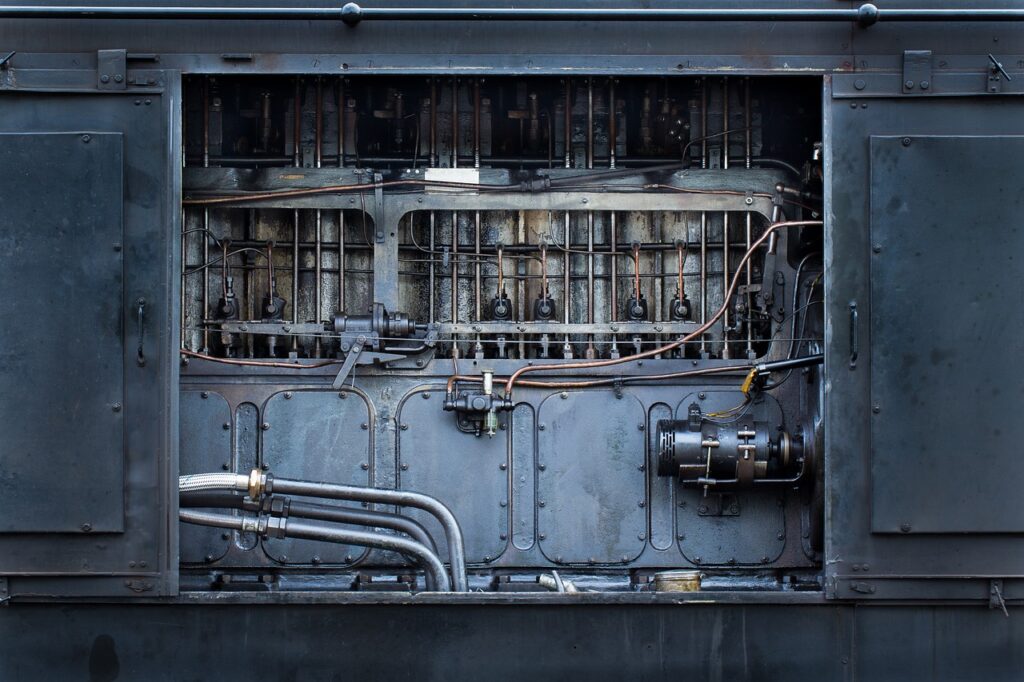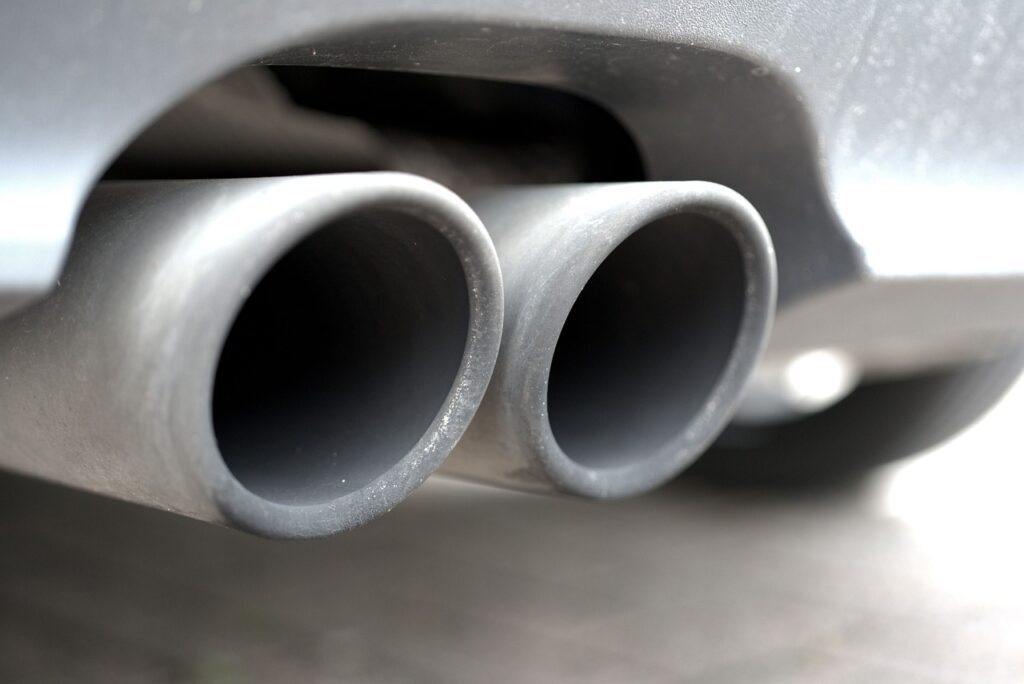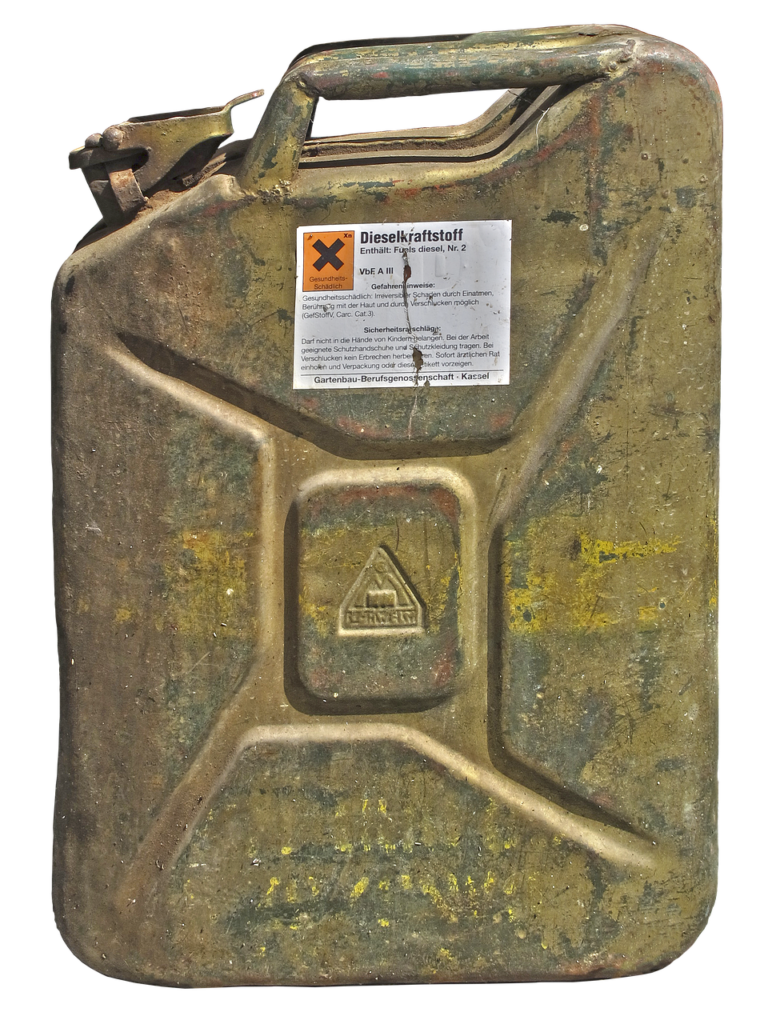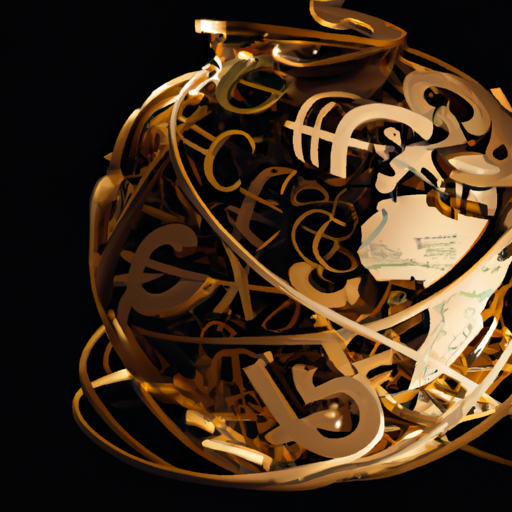International Events Likely to Affect Currency Markets, Gold Price, and Financial Markets
Rising Diesel Prices: Impact on Currency Markets
The recent increase in diesel prices can be attributed to the actions of two major players in the oil industry: Saudi Arabia and Russia. As a result, currency markets are experiencing some turbulence, particularly for the Russian Rouble. While the effects on the dollar, euro, and other significant currencies may be minimal, Russians are likely to bear the brunt of this surge in energy costs. Especially during the colder months, if Germany experiences a chilly winter, things may be even colder in Russia.
Putin’s Plans and Their Implications
Undoubtedly, Russian President Vladimir Putin and his advisors are fully aware of this issue. They have explored two potential plans to address the situation. Plan A involves introducing a new BRICKS currency backed by gold, which aims to increase the competitiveness of the dollar and euro against the Rouble. Plan B is more radical, proposing to back the Rouble with gold. However, the impact of such plans may not be as significant as expected.
Factors Affecting Financial Markets and Gold Prices
The increasing diesel prices driven by Saudi Arabia and Russia are not only impacting currency markets but also leaving their mark on financial markets and gold prices. These international events have the potential to trigger fluctuations in global financial markets, leading to uncertainty and volatility. Additionally, the demand for gold, often seen as a safe haven during times of economic turbulence, may rise as investors seek stability in an unpredictable market.
The recent diesel price increase linked to Saudi Arabia and Russia is causing repercussions not only in currency markets but also in financial markets and gold prices. As these international events unfold, their impact on various aspects of the global economy remains to be seen.

## Factors Driving Diesel Price Increase
Impact of Saudi Arabia and Russia
The increasing diesel prices can be attributed to the actions of two major players in the oil market – Saudi Arabia and Russia. These countries have a significant influence on the global energy market, and their decisions directly impact the price of diesel.
Weakening Rouble and Rising Energy Costs
These actions by Saudi Arabia and Russia are expected to weaken the Rouble, the currency of Russia. As a result, the cost of energy, including diesel, is likely to rise. This means that during the winter season, Russians will have to bear the brunt of higher energy costs, making colder temperatures even more challenging.
Putin’s Plan to Counter Currency Impact
Russian President Vladimir Putin and his advisors are well aware of the impact of these actions. They have devised various plans to mitigate the effects of the weakening Rouble. One such plan, known as Plan A, involved the introduction of a new currency backed by gold, aiming to make the Rouble more competitive against the dollar and euro. Another more radical plan, referred to as Plan B, considered backing the Rouble with gold. However, these plans are seen as only dropping a penny in terms of its impact on the overall economy.
Global Implications on Currencies and Gold Price
The actions taken by Saudi Arabia and Russia not only affect the price of diesel but also have broader implications for currency markets and the price of gold. These events can cause fluctuations in currency exchange rates and impact the value of gold, leading to ripple effects in financial markets worldwide.
Saudi Arabia and Russia play a significant role in driving diesel prices up. The weakening Rouble, rising energy costs, and Putin’s plans to address the impact of currency fluctuations all contribute to the complex factors influencing diesel prices in the global market.

## Saudi Arabia’s Role in Diesel Price Increase
Impact on Global Diesel Prices
The diesel price increase can be attributed to various factors, with Saudi Arabia playing a significant role. As one of the largest producers of oil in the world, any decisions made by Saudi Arabia have a direct impact on global oil prices, which in turn affect diesel prices. Saudi Arabia’s influence on oil production and pricing is well known and closely monitored by energy markets worldwide.
Production Cuts and OPEC
In recent years, Saudi Arabia has been actively cooperating with other oil-producing nations, most notably Russia, through OPEC (Organization of the Petroleum Exporting Countries). OPEC, led by Saudi Arabia, has implemented production cuts to stabilize and increase oil prices. The reduction in oil supply has led to a spike in diesel prices, as demand continues to outpace supply.
Geopolitical Tensions and Supply Disruptions
Furthermore, geopolitical tensions in the Middle East, particularly in Saudi Arabia, can impact diesel prices. Any disruptions in oil supply due to conflicts or oil facility attacks can result in a scarcity of diesel and subsequently drive up its price.
Global Energy Consumption and Winter Demand
Another factor contributing to the diesel price increase is the global rise in energy consumption, particularly during colder months. As winter approaches, countries like Russia heavily rely on diesel for heating purposes. Consequently, the increased demand during winter leads to a surge in diesel prices, with Saudi Arabia’s oil production decisions influencing the overall market.
Saudi Arabia’s role in the diesel price increase is crucial due to its position as a major oil producer and its influence on the global oil market. The production cuts implemented by Saudi Arabia and its cooperation with Russia through OPEC contribute to the rise in diesel prices, while geopolitical tensions and increased winter demand further exacerbate the situation.

## Increase in Saudi Arabia’s Oil Production
The Impact on Diesel Prices
One of the main factors driving the increase in diesel prices is the rise in Saudi Arabia’s oil production. Saudi Arabia is one of the largest oil producers in the world, and any change in their production levels has a significant impact on global oil prices. When Saudi Arabia increases its oil production, it leads to an increase in the supply of oil in the market. This increase in supply puts downward pressure on prices, resulting in higher diesel prices.
Saudi Arabia’s Strategy
Saudi Arabia’s decision to increase oil production is driven by various factors. One key factor is their aim to maintain market share and compete with other major oil producers, such as Russia. By increasing production, Saudi Arabia can meet the growing demand for oil and ensure that they remain a dominant player in the global oil market.
Russian Competition
Another factor driving the increase in diesel prices is the competition between Saudi Arabia and Russia. Both countries are major oil producers, and their actions can impact global oil prices. When Russia increases its oil production, it adds to the global supply, leading to a decrease in oil prices. As a result, diesel prices tend to rise as the cost of production increases and is passed on to consumers.
The increase in Saudi Arabia’s oil production, along with competition from Russia, is a significant factor driving the increase in diesel prices. These factors have a direct impact on the global oil market, leading to higher energy costs for consumers worldwide.

## Impact of Saudi Arabia’s Oil Production Increase on Diesel Prices
Increase in Oil Supply
One of the key factors driving the increase in diesel prices is the decision by Saudi Arabia to ramp up its oil production. As one of the largest oil producers in the world, any change in Saudi Arabia’s oil output has a significant impact on global energy markets. By increasing their oil production, Saudi Arabia is flooding the market with more supply, which leads to an increase in diesel prices.
Global Demand for Diesel
Another factor contributing to the rise in diesel prices is the global demand for this fuel. Diesel is widely used in transportation, manufacturing, and construction industries, making it an essential commodity. As economies around the world recover from the impact of the pandemic, the demand for diesel has been steadily increasing. This surge in demand, coupled with the increase in oil production, puts upward pressure on diesel prices.
Geopolitical Factors
The relationship between Saudi Arabia and Russia also plays a role in the increase in diesel prices. These two countries are major players in the global oil market and their decisions can have far-reaching consequences. Any political tension or disagreement between Saudi Arabia and Russia can disrupt oil supply chains, leading to a spike in diesel prices.
The increase in Saudi Arabia’s oil production, coupled with global demand for diesel and geopolitical factors, is driving up diesel prices. As a consumer, you may experience the effects of these factors through higher fuel costs and their impact on the overall economy.
Russia’s Role in Diesel Price Increase
Background on the Issue
The rising diesel prices have been attributed to the actions of Saudi Arabia and Russia, which have had a significant impact on global oil markets. While these actions have resulted in higher energy costs worldwide, it is Russia that is likely to bear the brunt of the consequences. As winter approaches, Russians can expect to experience the effects of increasing energy costs, particularly if temperatures drop in neighboring countries like Germany.
Impact on Currency and Financial Markets
Russia’s decision to weaken the Rouble has caused concern among currency markets. Experts argue that this move is not expected to affect the dollar, euro, or other major currencies significantly. However, the Rouble is likely to face further depreciation, potentially leading to adverse consequences for the Russian economy.
Putin’s Strategies
Russian President Vladimir Putin and his advisors are aware of the implications of these decisions. They had initially considered introducing a new currency backed by gold, which aimed to make the dollar and euro less competitive against the Rouble. Alternatively, they contemplated backing the Rouble with gold, a move that experts considered rather drastic with minimal impact.
It is clear that Saudi Arabia and Russia’s actions are leading to higher diesel prices, with Russia facing the majority of the consequences. The currency and financial markets are closely watching how these events unfold and how they will impact global economies.
Russia’s Influence in Global Oil Market
Impact on Oil Prices
Russia, as one of the world’s largest oil producers, has a significant influence on global oil prices. Any changes in their oil production, exports, or geopolitical relations can have a ripple effect on the overall market. Saudi Arabia, another major player, also has the ability to influence oil prices by adjusting its production levels. Thus, the actions of both countries can lead to an increase in diesel prices.
Geopolitical Tensions
Geopolitical tensions between Saudi Arabia and Russia can further contribute to diesel price hikes. Disputes or conflicts between these two countries may disrupt oil supplies and create an atmosphere of uncertainty in the market. As a result, diesel prices may rise due to fears of potential supply disruptions.
Currency Impact
The weakening of the Russian Rouble against major currencies like the dollar and euro can impact diesel prices. As the Rouble weakens, the cost of importing diesel increases, which ultimately gets passed on to consumers. Therefore, fluctuations in currency exchange rates play a significant role in determining the price of diesel.
Winter Effect
In colder regions, such as Russia, an increase in diesel prices can have a direct impact on consumers’ lives. Higher energy costs during winter can lead to increased expenses for heating, making it difficult for individuals to keep warm. Consequently, the rise in diesel prices driven by Saudi Arabia and Russia can pose challenges for people in these regions, especially during cold weather conditions.
Considerations for the Future
It is important to closely monitor the actions of Saudi Arabia and Russia, as they continue to influence diesel prices. Geopolitical tensions, oil production levels, and currency fluctuations will all play a crucial role in determining the future trajectory of diesel prices. Therefore, staying informed about these factors will help you better understand the dynamics of the diesel market and make informed decisions related to fuel consumption.
Impact of Russia’s Influence in Global Oil Market on Diesel Prices
Introduction
In recent times, Saudi Arabia and Russia have emerged as key players in the global oil market, causing fluctuations in diesel prices worldwide. These actions have primarily affected the Rouble, weakening it against other major currencies. Consequently, as energy costs increase, Russians will bear the brunt of this situation during the winter months, experiencing colder temperatures compared to Germany. The dominance of the dollar as the ruler of currencies further accentuates the vulnerability of the Rouble.
Plan A: Introducing a New BRICKS Currency
Aware of the consequences, President Putin and his advisors devised a two-pronged approach. Plan A aimed at the creation of a new BRICKS currency backed by gold, intending to enhance the competitiveness of the dollar and the euro against the Rouble. However, this strategy seemed insufficient in tackling the underlying issues.
Plan B: Backing the Rouble with Gold
The more radical alternative, Plan B, involved supporting the Rouble with gold. Though this proposal was symbolically significant, its impact in terms of money was limited, comparable to dropping a mere penny.
Considering these factors, it is evident that the influence of Saudi Arabia and Russia in the global oil market significantly contributes to the rise in diesel prices worldwide, affecting currency markets, gold prices, and financial markets.
Impact of Diesel Price Increase on Rouble
The Weakening Effect on Currency
The recent rise in diesel prices, triggered by actions from Saudi Arabia and Russia, has had repercussions beyond the energy sector. The impact is expected to first hit the Rouble, causing it to weaken in comparison to major global currencies such as the dollar and the euro. This could have significant consequences for Russian citizens, especially during the colder months. If Germany experiences cold weather, Russians can expect even chillier temperatures, as the increased energy costs take their toll.
Putin’s Considerations and Proposed Plans
It is clear that Putin and his advisors are aware of this issue. Their initial Plan A involved the introduction of a new BRICKS currency, backed by gold, to make the dollar and euro less competitive against the Rouble. However, a more radical Plan B was also considered, which entailed backing the Rouble with gold. This option, though seemingly drastic, would only have minimal impact on the financial markets and the overall value of the currency.
Understanding the Broader Implications
The increase in diesel prices driven by Saudi Arabia and Russia has the potential to disrupt currency markets, affect gold prices, and have broader implications for the global financial landscape. It is crucial to monitor the developments closely, as they can have far-reaching effects on various aspects of the economy. As the situation unfolds, it remains to be seen how these factors will shape the future of diesel prices, currency stability, and economic conditions both domestically and internationally.
Potential Implications
In an effort to combat the weakening of the Rouble, Saudi Arabia and Russia are considering implementing Plan B: backing the currency with gold. This bold move could have far-reaching effects on international currency markets, gold prices, and financial markets as a whole.
A Potential Game Changer
Backing the Rouble with gold is an unconventional strategy that Putin and his advisors have been contemplating. By doing so, they hope to strengthen the currency, making it more competitive with the dollar and euro. This move is in response to the increasing energy costs driven by Saudi Arabia and Russia, which have led to rising oil and diesel prices.
Weakening the Dollar and Euro
The ultimate goal of Plan B is to reduce the reliance on the dollar as the dominant global currency and establish a new BRICKS currency backed by gold. This would not only weaken the dollar and euro, but also diversify the global currency landscape.
While the potential effects of backing the Rouble with gold are significant, it remains to be seen how exactly this would impact diesel prices. However, given the rising energy costs, it is likely that diesel prices would continue to increase. Russians, in particular, may face the repercussions of these actions, especially during the winter months when colder temperatures drive up energy consumption.
In conclusion, Plan B represents a bold and unconventional strategy that Saudi Arabia and Russia are exploring to strengthen the Rouble. The implications are far-reaching, with potential impacts on currency markets, gold prices, financial markets, and diesel prices. Only time will tell if this move will reshape the global financial landscape and provide the desired results for these two influential nations.



